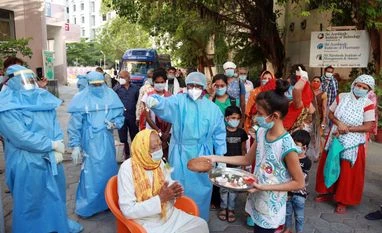Longreads
Covid-19 patients at higher risk of dying from any surgery: Covid-19 patients are at a higher risk of dying if they undergo any surgery - even minor or elective surgery. This finding comes from a new global study published in The Lancet on the risks of postoperative death for Covid-19 patients by experts at the University of Birmingham-led NIHR Global Research Health Unit on Global Sur-gery. Read more here
To read the full story, Subscribe Now at just Rs 249 a month
Already a subscriber? Log in
Subscribe To BS Premium
₹249
Renews automatically
₹1699₹1999
Opt for auto renewal and save Rs. 300 Renews automatically
₹1999
What you get on BS Premium?
-
Unlock 30+ premium stories daily hand-picked by our editors, across devices on browser and app.
-
Pick your favourite companies, get a daily email with all news updates on them.
Full access to our intuitive epaper - clip, save, share articles from any device; newspaper archives from 2006.
Preferential invites to Business Standard events.
Curated newsletters on markets, personal finance, policy & politics, start-ups, technology, and more.
Need More Information - write to us at assist@bsmail.in



)